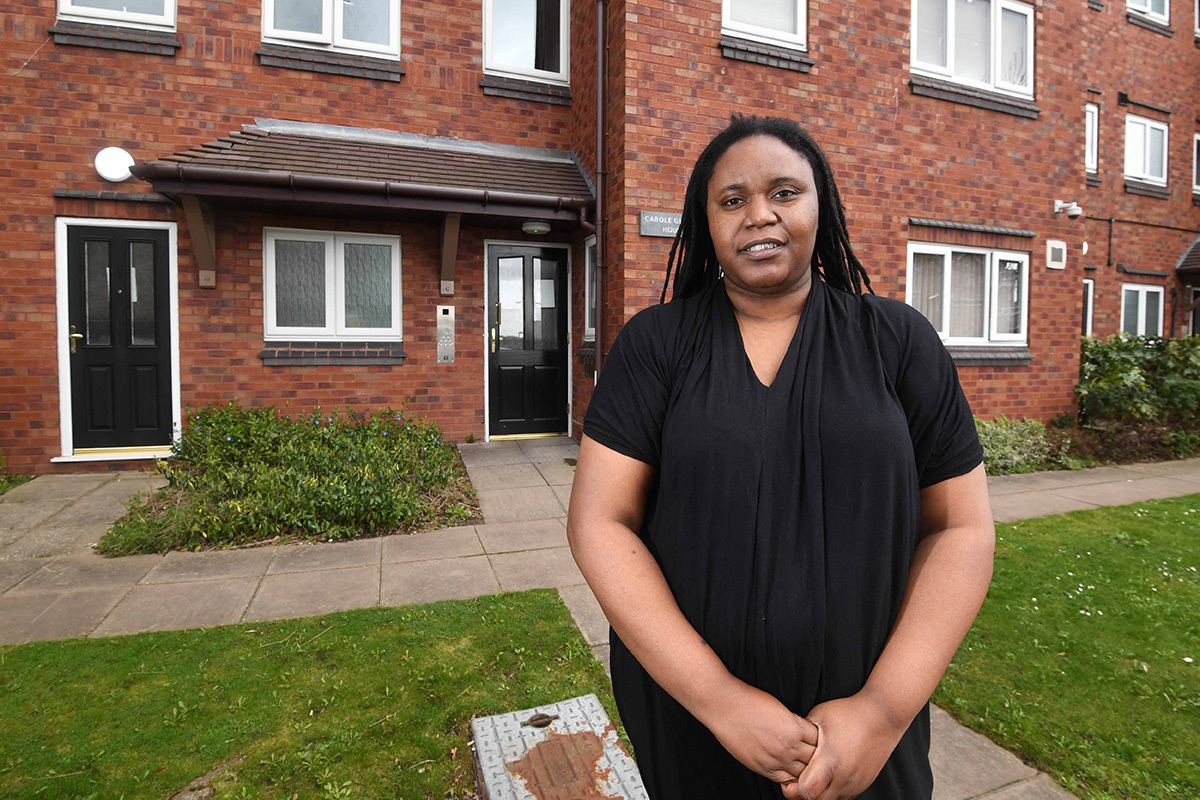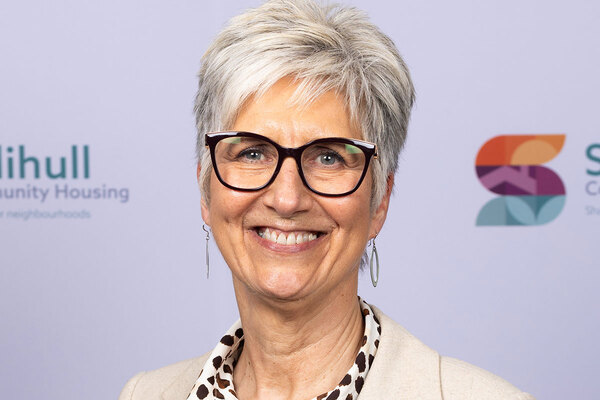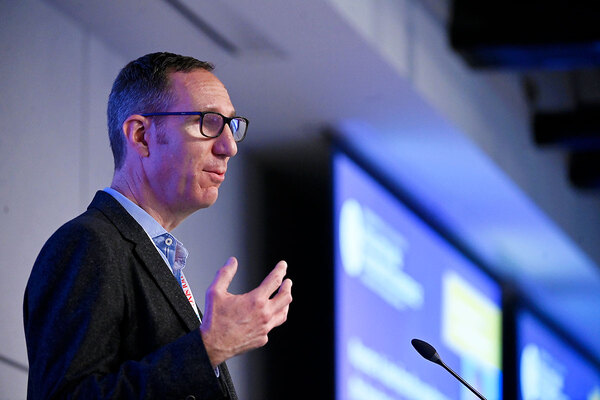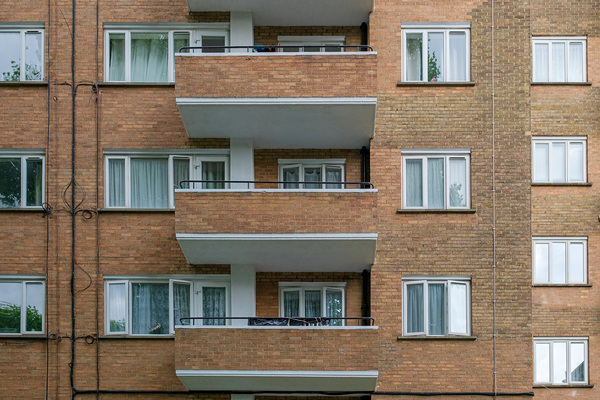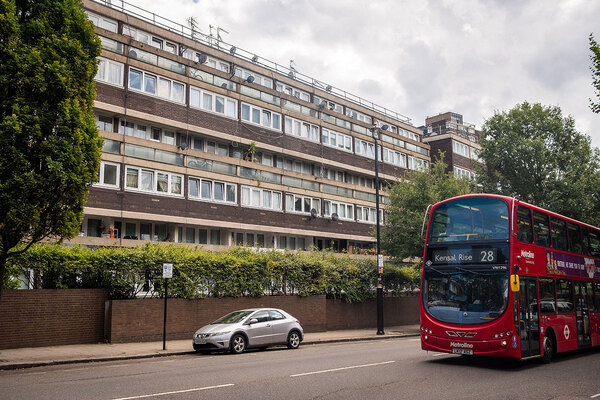You are viewing 1 of your 1 free articles

Caroline Cawley is a member of the national committee of Living Rent
Social tenants will be left out in the cold when Scotland’s rent freeze ends
Scotland’s rent freeze will be axed at the end of March. Caroline Cawley says this spells disaster for Living Rent’s members and all social housing tenants
In a frustrating climbdown last month, Patrick Harvie, the Scottish tenants’ rights minister, announced that the rent freeze introduced by the Scottish government the year before is to be axed at the end of March. From 1 April, landlords can raise rent by 3% and can attempt to increase this by up to 6% to help cover their own increased costs. No extra support was announced for tenants.
In social housing, the Scottish Federation of Housing Associations (SFHA), West of Scotland Housing Association (WSHA) and Convention of Scottish Local Authorities (COSLA) have committed to keeping rent below inflation.
COSLA has committed to an average increase of £260 a year and SFHA and the Glasgow and West of Scotland Forum of Housing Associations are planning average increases of 6.1%.
“Throughout the discussion on these emergency protections, we have heard a lot from the government and social landlords. We heard less from social and council tenants”
Our members believe that the government’s decision displays a disregard for social housing tenants and shows how, too often, their landlords’ perspectives take priority over their needs and experiences.
As a union, we believe that this emergency protection bill has missed an opportunity to really understand the challenges facing social tenants and to provide appropriate governmental support and intervention.
Throughout the discussion on these emergency protections, we have heard a lot from the government and social landlords. We heard less from social and council tenants, which is why we’ve spoken to our members about their experiences of and opinions about the government’s arguments.
Social housing tenants are among the lowest paid and therefore least likely to have seen their wages increase, even though inflation hit 11% last year. They are among the most vulnerable and yet did not receive any protections or greater support. Too many have told us they are worried about impending increases and being squeezed between upcoming rent increases and the next energy rises in April. With many tenants relying on old overnight storage heaters which are now too expensive to run, a lot of people have to choose between heating and heating.
“Social housing providers say that they are consulting on increases… But our members believe that the consultations are an exercise in flimsy democracy”
The government said that rent increases would not impact many social tenants, arguing that three-quarters of tenants will see an increase in benefits. But the latest available research suggests that this is only true of 59% of tenants (with many having only partial benefits).
This leaves 41% of some of the lowest paid, who will be squeezed between stagnant wages, rising costs and rent, without financial support. A number of our members have said that they worry about debt and struggling to keep their homes.
The Tenant Grant Fund is also running dry in too many local authorities, with the government making no move to renew it.
Our members resent rent increases being justified by often unaccountable and undemocratic rent consultations. Social housing providers say that they are consulting on increases and tenants will be able to have a say on what works for them. But our members believe that the consultations are an exercise in flimsy democracy.
This is something that we, as a union, have been highlighting for two years, denouncing consultations with very low participation rates. In some instances, increases were already decided in pre-meetings by the board and then rubber-stamped through consultations, with a presupposition that rents would increase.
And on top of this, the average promised by social landlords hides large differences. Some proposals suggest increasing rent by 7%, 9% or 10%. All these proposals are higher than the 6.1% increase Mr Harvie said housing associations had committed to. As a union, we believe that the sector’s commitment to an average increase enables individual housing associations to increase rent up to the level of inflation.
The contrast between Westminster legislation and that of Holyrood is stark: in 2015, George Osborne, the chancellor of the exchequer at the time, ordered social landlords to freeze and then cut rents by 1% per year for the next four years. There has been no equivalent from Holyrood.
Part of the government’s justification for rent increases is to pay for repairs, investments and retrofitting, but some of our members are reporting health-threatening damp and mould.
Too many buildings remain unmodernised, energy inefficient and with many outstanding structural issues. As the cost of living hit hard this winter, some of our members faced bills of £300 per month. With energy costs set to rise again in April, the situation will not get any better.
This is a missed opportunity for the government to examine how it supports social and council tenants and ensure that they have accessible, affordable and quality homes. The government needs to stop cutting social housing budgets, leading social landlords to then turn to tenants for cash.
Instead, it needs to improve the sector through grants for retrofits and new builds, greater regulation of rent increases and rent consultations, and more regulation around mould and repairs. Increasing the Tenant Grant Fund also means fewer people would be at risk of losing their homes through arrears build-up.
These actions need to happen now.
Caroline Cawley, member of the national committee, Living Rent
Sign up for our Scotland newsletter
Already have an account? Click here to manage your newsletters
Related stories



